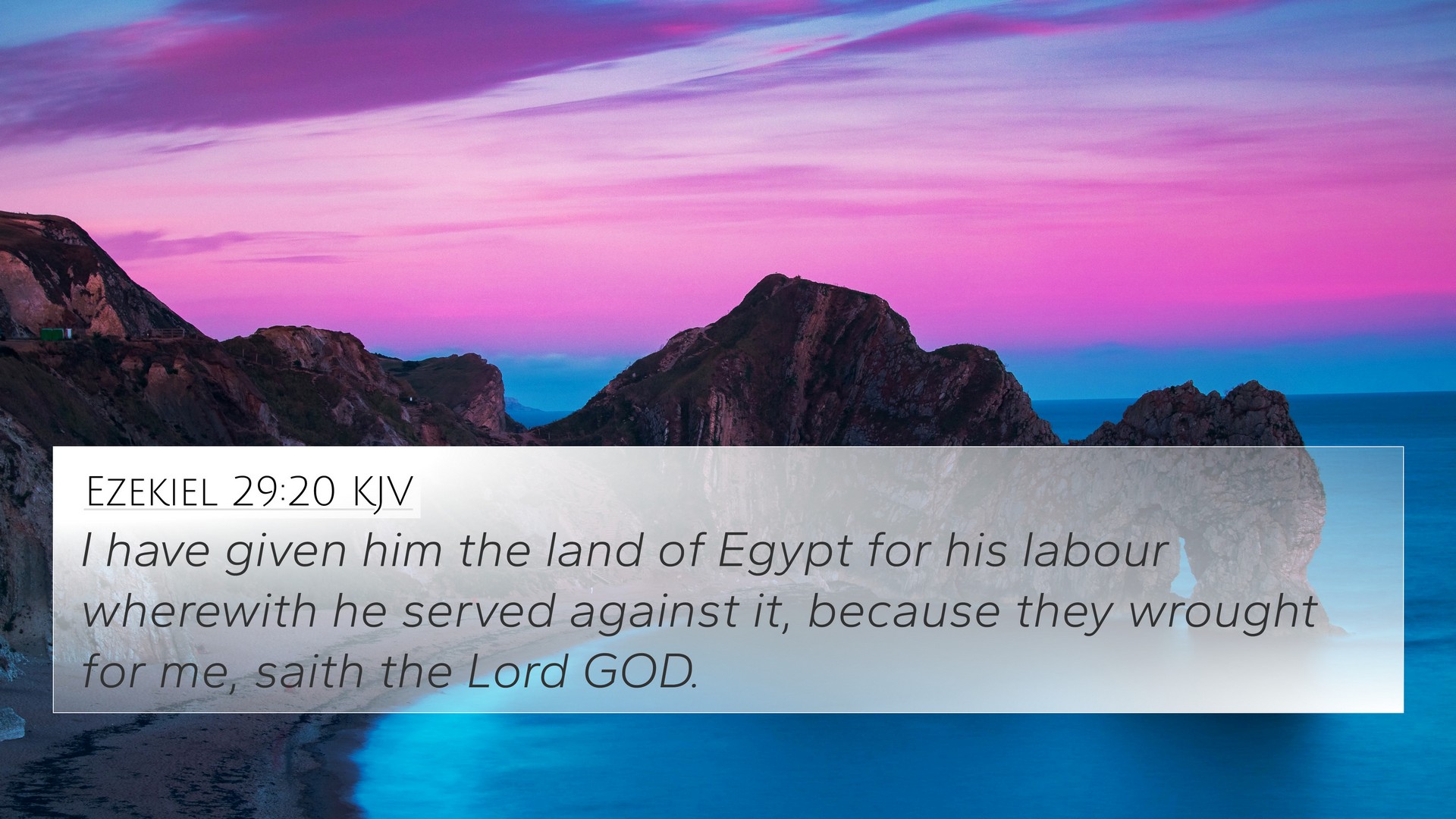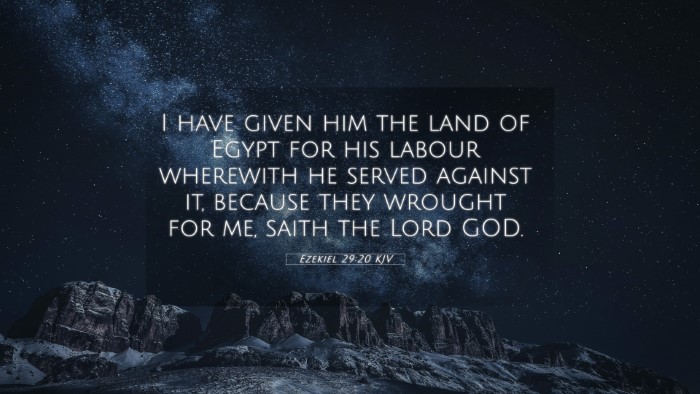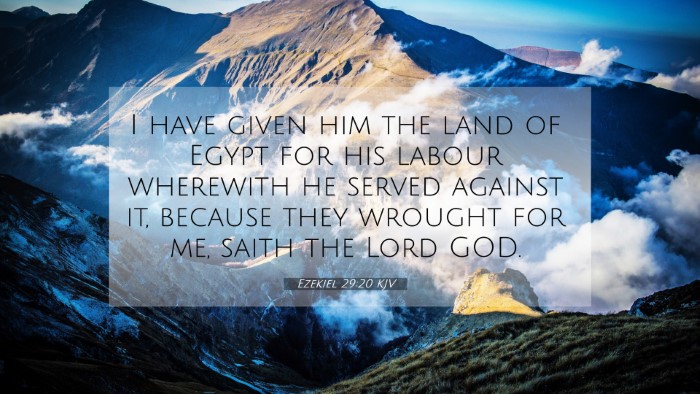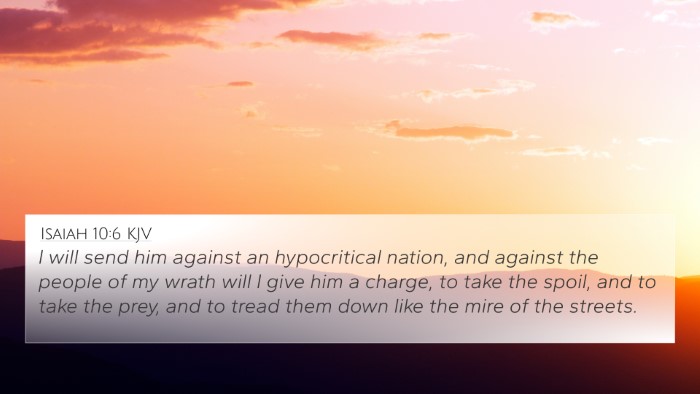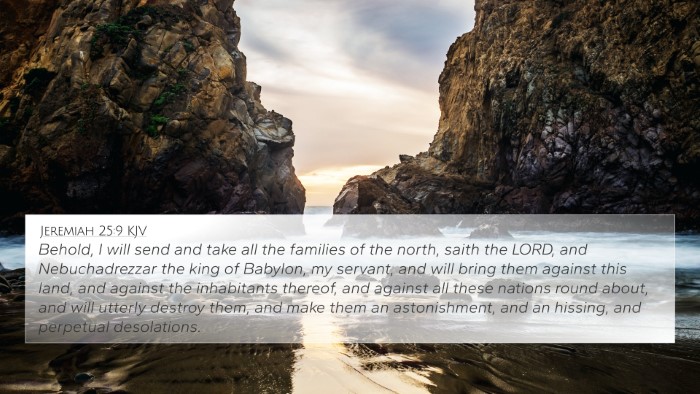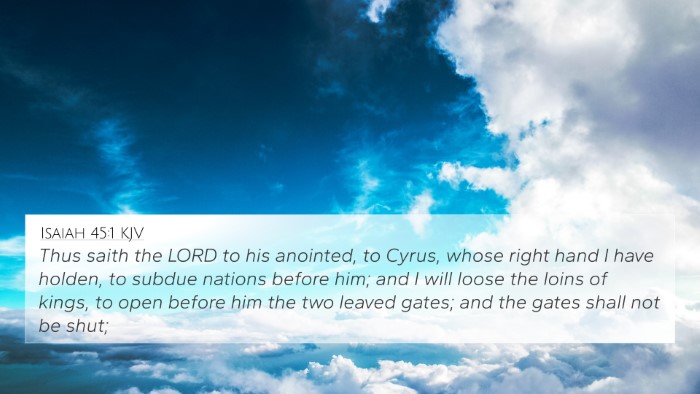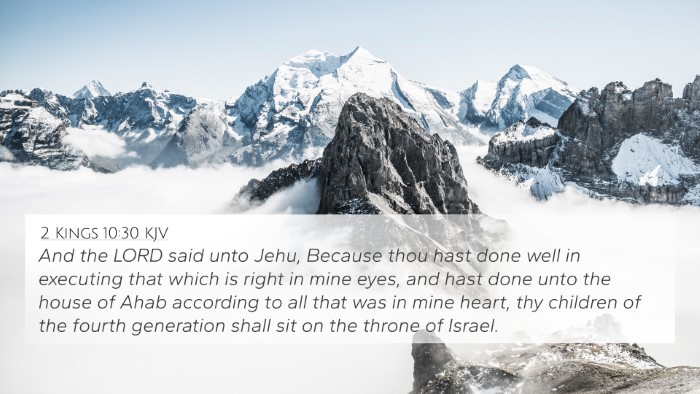Ezekiel 29:20 - Summary and Meaning
Ezekiel 29:20 states, "I have given him the land of Egypt for his labor, because they worked for me, saith the Lord God." This verse addresses the prophecy concerning Egypt and emphasizes the judgment and consequences of the nations' actions, especially in relation to God's sovereignty.
Context and Interpretation
The context of this verse occurs within a series of prophetic messages directed towards nations surrounding Israel. Ezekiel, a prophet during the Babylonian exile, was tasked with declaring God's judgment upon these nations, including Egypt. The commentary from various scholars such as Matthew Henry, Albert Barnes, and Adam Clarke sheds light on its deeper meanings.
Insights from Commentaries
Matthew Henry's Commentary:
Henry explains that this verse is a reaffirmation of God's control over nations and their destinies. The reference to labor emphasizes the idea that God compensates nations for their actions, suggesting that Egypt's past endeavors will not go unnoticed. God's justice dictates that even a nation that opposes His will has a prophetic fate that aligns with divine purpose.
Albert Barnes' Notes:
Barnes highlights the distinction between God’s interactions with Israel versus His judgment upon other nations, specifically exemplifying the covenant aspect with Israel. His commentary implies that Egypt, despite its might and economic significance, is ultimately subject to God's overarching plan. This verse illustrates that God can utilize even the nations that oppose Him as part of His judgment and justice.
Adam Clarke's Commentary:
Clarke provides a cultural background to the verse, interpreting labor as not just physical toil but spiritual significance. He notes that Egypt’s abundance drew temptation and led to reliance on its own strength rather than on God. The verse warns against this sentiment, illustrating that God holds the authority to determine the fate of nations, based on their actions and alliances.
Thematic Connection and Cross References
Understanding Ezekiel 29:20 can be enhanced with cross-references to similar themes throughout the Bible:
- Isaiah 19:17 - Discusses the impending judgment upon Egypt.
- Jeremiah 46:26 - Affirms the downfall of Egypt due to their rebellion.
- Ezekiel 30:4 - Elaborates on the calamity that shall come upon Egypt.
- Zephaniah 2:15 - Highlights the pride and resultant downfall of nations.
- Daniel 2:21 - States that it is God who controls the rise and fall of kingdoms.
- Revelation 18:2 - A New Testament affirmation of judgment against great nations.
- Psalms 146:3-6 - Warns against putting trust in princes and human might.
Practical Applications
This verse serves as a reminder of God's authority over all nations and emphasizes the importance of recognizing divine sovereignty in our personal lives and nations at large. The verse resonates with believers today as they navigate the complexities of faith in a world often focused on human achievement.
Tools for Cross-Referencing Bible Verses
For those engaged in Biblical study, utilizing tools for Bible cross-referencing can deepen understanding. Some resources include:
- Bible concordance - A comprehensive indexing tool for locating scriptures.
- Bible cross-reference guide - Helps in navigating interconnected scriptures.
- Cross-reference Bible study methods - Techniques to explore thematic connections in scripture.
- Bible reference resources - For gaining insights into related verses.
Conclusion
In conclusion, Ezekiel 29:20 encapsulates pivotal themes about God’s judgment, sovereignty, and the fate of nations, supported profoundly through various commentaries and inter-Biblical dialogue. Understanding these connections enhances the reader’s appreciation of God’s justice and the historical context that shapes such divine pronouncements.
